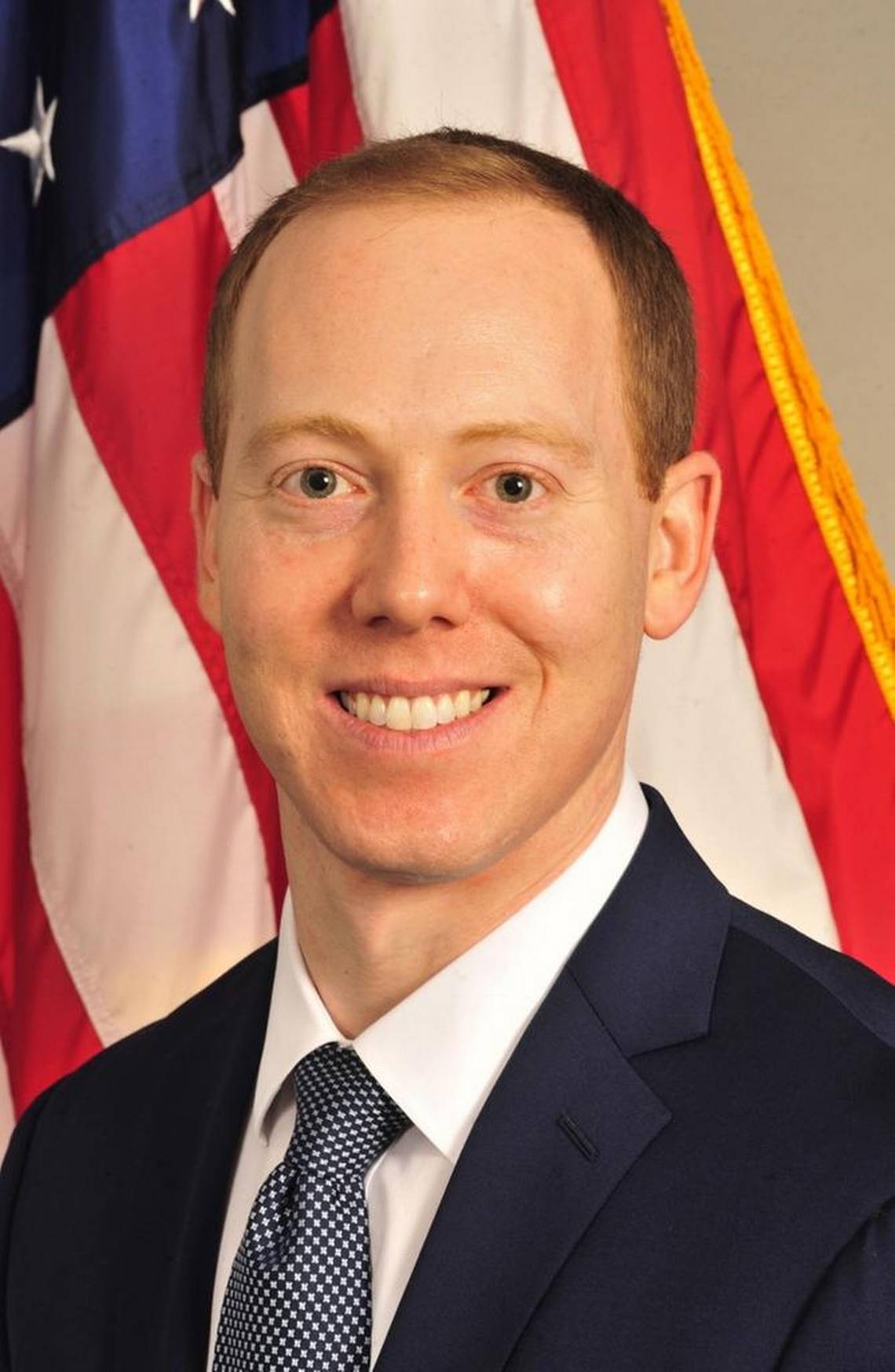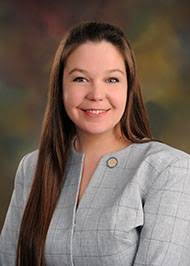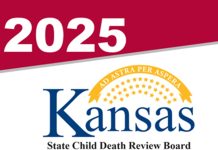Good morning everyone:
An extraordinarily slow week, maybe the slowest since we started this little venture about 18 months ago.
Frankly, most everything that happened last week we had for you, with a few minor exceptions. So there’s not a lot new out there this Sunday. But we searched high and low, and here’s the best we could find today.
Let’s start with the most significant stories we published last week and move on to other news you may have missed but need to know.
- Senate’s Medicaid expansion plan comes together.
- Senate President Susan Wagle’s chief of staff said he was let go over a disagreement about whether he should work on her U.S. Senate race.
- Kansas Chamber of Commerce executive Alan Cobb decided he’s not running for the Senate. Former Democratic Congresswoman Nancy Boyda dropped out of the Senate race.
- The governor’s office reshuffled its staff, including hiring a former Senate staffer to oversee government affairs and changing out the scheduler.
- Former Republican state senator from Wyandotte County considers running for Congress in Kansas’ 3rd District.
- U.S. Senate candidate Kris Kobach parachutes into Roeland Park to challenge the city Police Department’s immigration policy.
- Planned Parenthood is considering adding a third clinic to the state in Kansas City, Kan.
- It’s going to be a historic month for Kansas at the U.S. Supreme Court.
- Republicans protest Congresswoman Sharice Davids, but draw out her supporters.
Now on to other news….
Senate District 7 scramble
Speculation has been heating up in recent days about whether Democratic state Sen. Barbara Bollier is going to take the leap into the U.S. Senate race. One progressive activist even claimed on Twitter to have “reliable sources” telling him she was going to run.
Bollier wouldn’t betray her plans when asked about a U.S. Senate campaign Saturday. She urged patience in a phone interview.
We don’t claim to believe everything we see on Twitter (and you shouldn’t either), although some of our sources have suggested that we may see an announcement from Bollier this week. Stay tuned.
What we do know is that if Bollier runs for the U.S. Senate, there are already two prominent politicos — former Kansas Democratic Party Chairman Ethan Corson and state Rep. Stephanie Clayton — who are considered as possible candidates for the District 7 seat.

“Having dedicated my career to public service and social justice, including fighting for voting rights as an attorney, serving in the highest levels of our federal government, and working tirelessly to help elect candidates who put working families first, I am interested in running for the Kansas Senate should the chance present itself,” Corson said in a statement.
Corson, who lives in Fairway, worked as executive director of the Kansas Democratic Party starting in 2017 and announced he was leaving earlier this year.
He came to the Kansas Democratic Party from the U.S. Department of Commerce, where he worked as a senior adviser to the secretary and as chief of staff for the International Trade Administration.
He also spent seven years in private practice as an attorney specializing in federal and state litigation, administrative proceedings, investigations and audits. He plans to start work next month with a firm that specializes in labor law.

Clayton, who lives in Overland Park and is now serving her fourth term in the Kansas House, also said she is looking at running for the state Senate if Bollier decides to campaign for the U.S. Senate.
She said she’s been asked frequently about whether she would run for a Senate district that she now largely represents in the Kansas House.
“I am considering everything, trying to look and see where I would go best,” she said. “I can say to you with all truth, I don’t know yet.”
She said she’s still evaluating a possible run but emphasized she had not decided anything. “At this point, it’s calm, measured discussions,” she said. “Playing it slow, playing it smart and talking to my people.”
Over the years, Clayton has not had a serious general election challenge, winning re-election with 65% of the vote in 2014, 60% of the vote in 2016 and 59% of the vote last year.
Senate District 7 is in the heart of the Democratic territory in northeastern Johnson County. Many of the county’s Democratic House members live in this part of the county.
Democratic Gov. Laura Kelly defeated Republican Kris Kobach by about 39 percentage points in this district last year, and Democratic Congresswoman Sharice Davids beat Kevin Yoder by 28 percentage points.
‘Absolute warrior’ passes away
The little girl who became a namesake for a bill last session allowing someone with a disabling health condition to use CBD oil with a low level of THC died early Saturday morning.

Scott and Gwen Hartley reported the passing of their daughter, Lola, on Facebook. Lola was 13. She had suffered from a neurological condition called Microcephaly, a birth defect where a child is born with a head that is much smaller compared to babies of the same age and sex. Her older sister, Claire, who had the same condition, died last year.
“Early this morning, with a full moon shining in our PICU window, our sweet Lola descended into the Heavens to be reunited with her big sister, Claire. Her body was overcome by back-to-back viruses as well as other medical complications that she was not able to overcome. She fought with everything in her to stay,” the family posted on Facebook.
“She is quite literally the strongest human being we have ever known. She could have left so many times over the course of her 13.5 years, and every single time, she chose to stay. We are completely devastated. She was an absolute warrior till her last breath and final heartbeat. We are going to miss her so incredibly much.”
Gov. Laura Kelly signed a bill this year called “Claire and Lola’s law,” which provided an affirmative defense to someone prosecuted for possession of such a treatment if they have a debilitating medical condition. It also would similarly shield parents of a child with such a condition.
The Hartley’s, along with Lola, were a presence at the Capitol last session as they lobbied for the bill.
Ethics law proposals
The Kansas Ethics Commission is looking at recommending a couple changes in state law next year, including one that would cover bonuses that lawmakers pay their aides.
Currently, state law bars legislators from paying state employees any more than what they are due for their work.
However, commission staff said in the past, there have been instances where some legislators pay bonuses to their assistants out of their campaign fund or personally.
While this may violate the law, it doesn’t raise significant concerns, the staff said. The commission may softly suggest (without explicitly recommending) that the law be changed so there is an exemption in these “highly specific” cases.
The commission also is considering asking for a change in state law to allow the Ethics Commission to work with federal authorities when conducting an investigation.
Currently, Ethics Commission investigations are confidential. Only documents presented at public hearings are considered open.
The law, however, allows the commission to work with other state agencies because an investigation could affect a law under their jurisdiction. It does not make any provision that would allow the Ethics Commission to work with federal authorities.
“The ability to communicate with federal officials about an investigation can be critical to ensure proper resolution of an issue, much in the same way that communication with state officials can be critical,” according to a draft Ethics Commission proposal.
“Additionally, if a federal subpoena were issued, commission staff would be in a difficult position regarding whether to potentially violate the state confidentiality statute or risk noncompliance with the subpoena.”
Industrial users respond to Westar request
A group of large electric power users is asking the Kansas Corporation Commission not to reconsider Westar’s request to recover the cost of buying a share of a coal-fired power plant from ratepayers.
The Kansas Industrial Consumers Group along with Citizens’ Utility Ratepayer Board filed their responses last week to Westar’s request. Here’s the industrial users group filing, along with CURB’S filing.
Last month, the KCC rejected the utility company’s request to pass on the cost of not only buying an 8% stake in the Jeffrey Energy Center in St. Marys but also a seven-month lease in the plant.
The KCC said Westar’s purchase agreement with Midwest Power Co. would have cost ratepayers $93 million in higher rates over the next 15 years. The commission also found Westar failed to show that the lease and purchase agreement was a “prudent decision for its retail customers.”
Westar wants the KCC to reopen the record to take evidence on the issue so it can reconsider its findings. The industrial users group, which includes companies such as Cargill and Spirit AeroSystems, disagrees.
“The Commission heard and relied upon substantial competent evidence to find Westar did not act prudently to explore alternatives to the present transaction prior to the expiration of its lease,” the group said in its filing.
“And the Commission relied on additional grounds, all supported by substantial record evidence, to find the purchase of the 8% interest in JEC was not prudent for Westar’s retail customers.
“None of these additional grounds are challenged by Westar. Westar did not meet its evidentiary burden, and there is no compelling reason to afford Westar an opportunity to build and present a new record.”
Out-of-state abortions
The Associated Press examined whether abortion regulations were sending women to neighboring states for the procedure. The AP found that at least 276,000 women went to other states to end their pregnancies between 2012 and 2017. Even as abortions declined nationally, The AP found that out-of-state abortions were up by about a half percent. Here’s a similar story to The AP’s version but is more tailored to Idaho.
About 47% of the women who had abortions in Kansas last year came from Missouri, which just passed a law banning abortions after the eighth week of pregnancy. However, that percentage has not changed much over time, especially with abortion clinics on the state line in the Kansas City suburbs. It was about the same percentage as 2014, for instance.
Kansas in the Supreme Court
Kansas kicked off a new term at the U.S. Supreme Court last week in a case challenging whether it was constitutional for the state to eliminate the insanity defense.
The case stemmed from a capital murder trial out of Osage County in which James Kahler was convicted of shooting to death three of his family members on Thanksgiving weekend 2009. It was the first of three Kansas cases that will be heard by the Supreme Court within the next month.
We will turn to SCOTUSblog for detailed coverage of last week’s oral arguments before the court. A second story from SCOTUSblog also has another account of Monday’s proceedings, although you have to read through it a little to get to the oral arguments in the Kansas case. Also coverage from NPR’s Nina Totenberg.
Also, here’s a link to the audio and a transcript from Monday’s hearing if you want to judge for yourself what happened. The hearing lasts about an hour.
Kansas in the Supreme Court: Chapter II
Attorney General Derek Schmidt is expected to be at the lectern later this week when the U.S. Supreme Court takes up the second of three Kansas cases it will hear this month. This one focuses on three identity theft cases arising out of Johnson County.
The state is appealing the Kansas Supreme Court’s decision to overturn Ramiro Garcia’s identify theft conviction after finding that federal immigration law preempts state criminal prosecutions for using false or stolen personal information contained in federal immigration forms.
The Garcia case is consolidated with two others from Johnson County with a similar set of facts.
Each case involved a restaurant worker who could not legally work in the United States and provided someone else’s Social Security number when completing the federal employment verification process, court briefs show.
In all three cases, prosecutors won identity theft convictions, which were upheld by the state Court of Appeals but eventually were reversed by the state Supreme Court.
The defendants argued on appeal that federal law barred prosecutors from using information on the federal form for verifying an employee’s identity (known as an I-9) even if the same information appears in other documents.
Oral arguments before the Supreme Court are scheduled for this Wednesday.
No third time for Orman
After losing races for the U.S. Senate and governor, it’s over for Kansas businessman Greg Orman. The Associated Press reported last week that Orman sent an email to supporters saying he has no plans to run for office in the foreseeable future.
Tobacco 21
Kansas News Service takes a broad look at the effort to increase the state’s tobacco age to 21 next legislative session and how the initiative might be undercut by the tobacco industry. The piece by KNS’ Celia Llopis-Jepsen also looks at the obstacles to enforcing the age 21 restriction. Worth a read this Sunday morning.
Medicaid work requirements on trial
A work requirement may never be in play in Kansas. Senate Republicans are working on a Medicaid expansion plan that calls for encouraging people to work but stops short of a mandate like the ones in Arkansas, Kentucky and New Hampshire that are being challenged in court.
On Friday, a federal appeals court in Washington heard oral arguments over work requirements for Medicaid expansion. A three-judge panel for the U.S. Court of Appeals for the District of Columbia seemed dubious of the requirements. Here’s coverage from McClatchy, the Arkansas Democrat-Gazette, Bloomberg, The Hill newspaper and Modern Healthcare
Meanwhile, New Hampshire Public Radio reports that the work requirements there have cost the state about $4.4 million in state and federal funds to implement the program. It’s also anticipated that it would cost another $1.6 million through 2025 for “evaluation activities.”
Secretary of State’s website
The Kansas City Star/Wichita Eagle published a story over the weekend questioning whether it was appropriate for Secretary of State Scott Schwab to use his office’s website to promote a passage of a constitutional amendment ending adjustments in the Census to account for the permanent residencies of college students and members of the military. The Ethics Commission was OK with it, but other disagreed.
State opens new park
Gov. Laura Kelly on Saturday marked the opening of Little Jerusalem Badlands State Park in Logan County. Here’s some coverage about the state’s new 330-acre park what separates it from other state parks. Here’s also really complete story from The Journal published by the Kansas Leadership Center and another pretty good overview from public radio.
Wildlife K-9 dies
Not a typical story for us, but if you care about dogs (and we do very much at Sunflower State Journal), this item is for you.
The Kansas Department of Wildlife, Parks and Tourism reported late Friday afternoon that Tibbie, a law enforcement K-9, died in an overheated vehicle in August.
The agency said the Labrador retriever died when the vehicle stalled, disabling the air conditioning system and causing temperatures to reach life-threatening levels. The department blamed a malfunctioning vehicle.

The agency said the dog was on patrol with her game warden handler when she died.
Tibbie’s game warden handler had secured the dog in a locked vehicle with the engine running when he did some unspecified business that did not require the dog’s help.
The agency said the game warden followed standard practice.
The game warden and a local veterinarian gave Tibbie emergency treatment. She was taken to the Veterinary Health Center at Kansas State University, where she died.
“K-9 handlers have a bond with their animal that is as strong as any human partner, and this team was no different,” KDWPT Law Enforcement Division director Col. Jason Ott said in a statement. “These K-9s aren’t just a law enforcement asset, they’re also a friend and colleague.”
Law enforcement vehicles with K-9s are equipped with heat alarms that are supposed to lower the windows and start the fans if the vehicle temperature reaches a certain level, the agency said. In this case, the heat alarm did not engage.
The manufacturer of the vehicle could not determine why the vehicle stalled. The manufacturer of the heat alarm confirmed that it was not engaged when the vehicle overheated.
“An internal investigation confirmed these findings and determined the game warden had not checked that the heat-alarm system was in working order the day of the incident,” the agency said in a news release.
The agency’s Law Enforcement Division is checking all vehicles that carry a K-9 officer. It’s also modifying K-9 program procedures and officer training to help prevent another dog death like this from occurring again.
Commerce Department maps out new strategy
Gov. Laura Kelly and Commerce Secretary David Toland announced last week that the state will map out its first economic strategy in more than 30 years.
The Commerce Department selected McKinsey & Company to assist the state with the initiative. The work over the next several months will be broken into three phases: assessment and benchmarking, recommendations and best practices, and implementation planning.
The state last developed an economic strategy in 1986. Here’s a link to that study, which was prepared by the Institute for Public Policy and Business Research at the University of Kansas.
“Kansas’ lack of a strategy has resulted in our state lagging in some key economic indicators such as GDP growth, population growth and labor participation,” Toland said in a statement.
“To be competitive in today’s global economy, we must identify and pursue new, nimble economic best practices. It’s past time that we develop a thoughtful, strategic plan to guide Kansas forward.”













